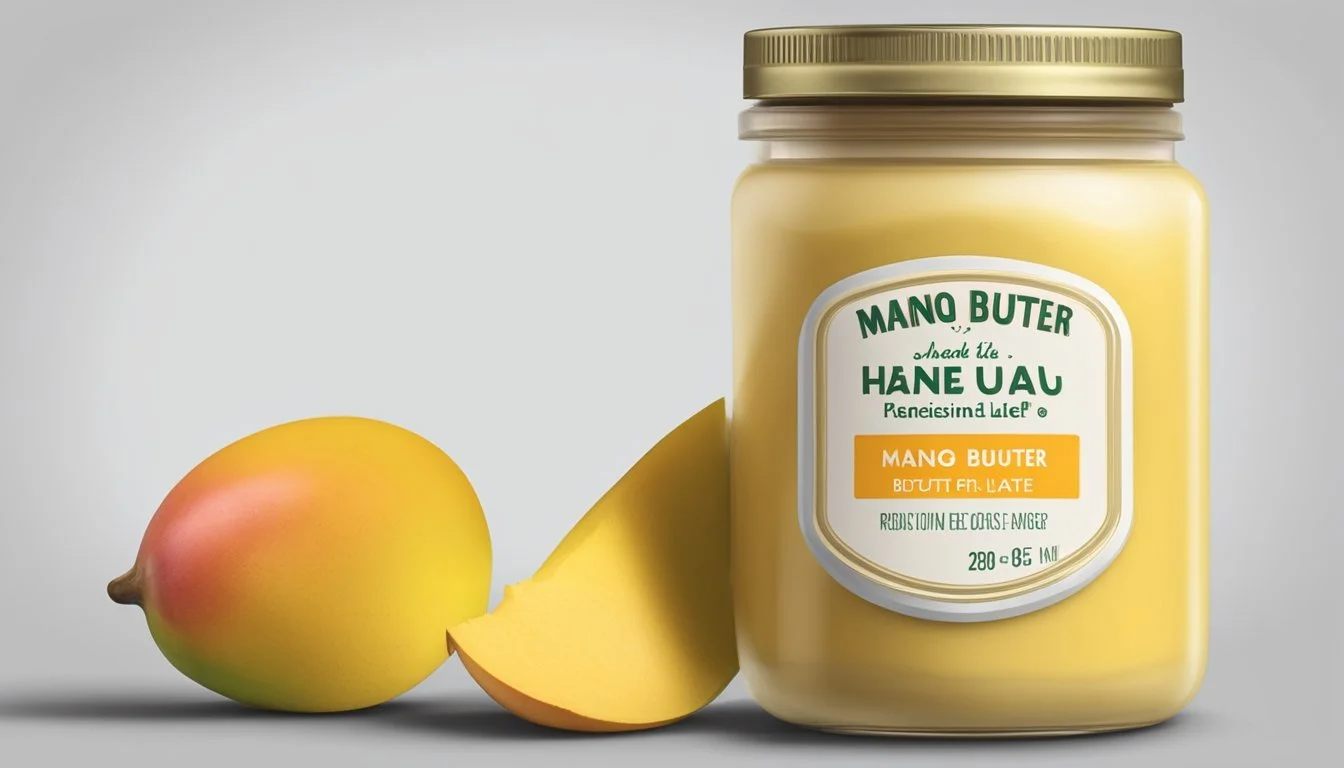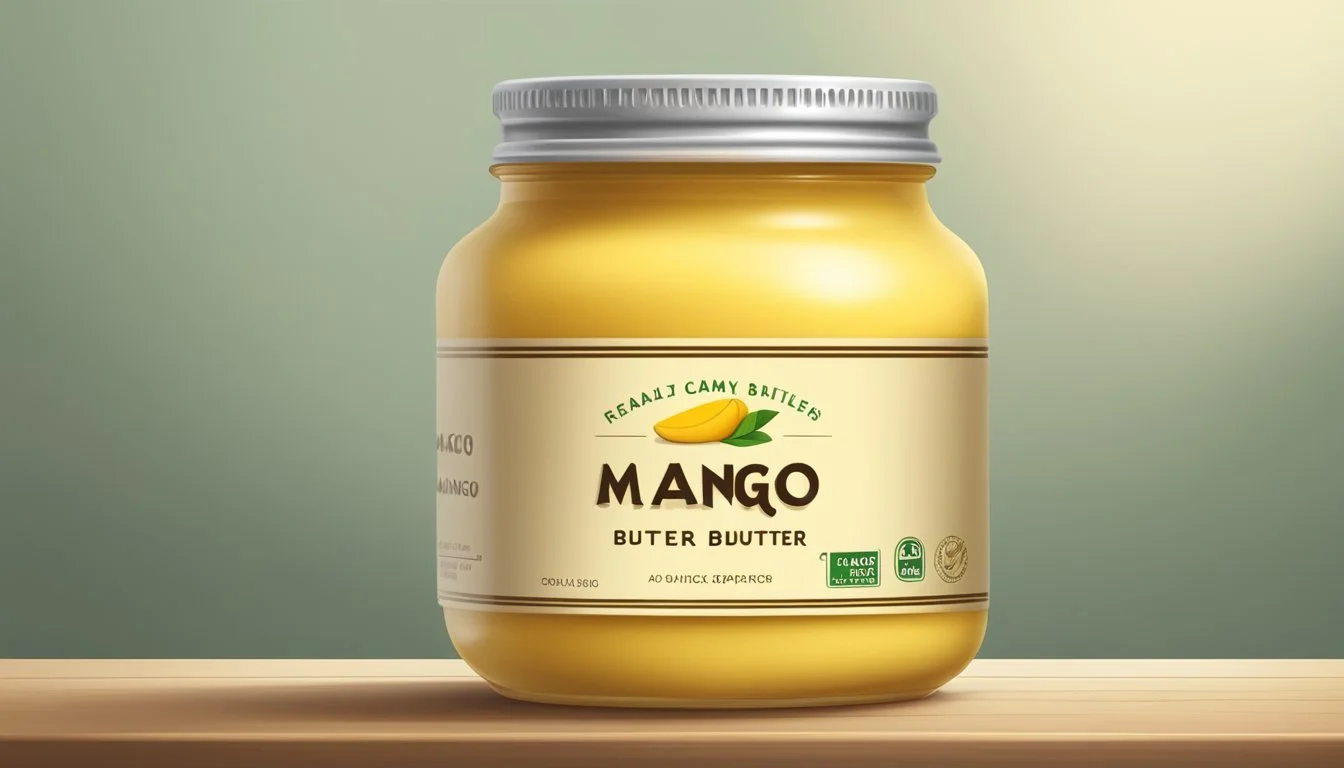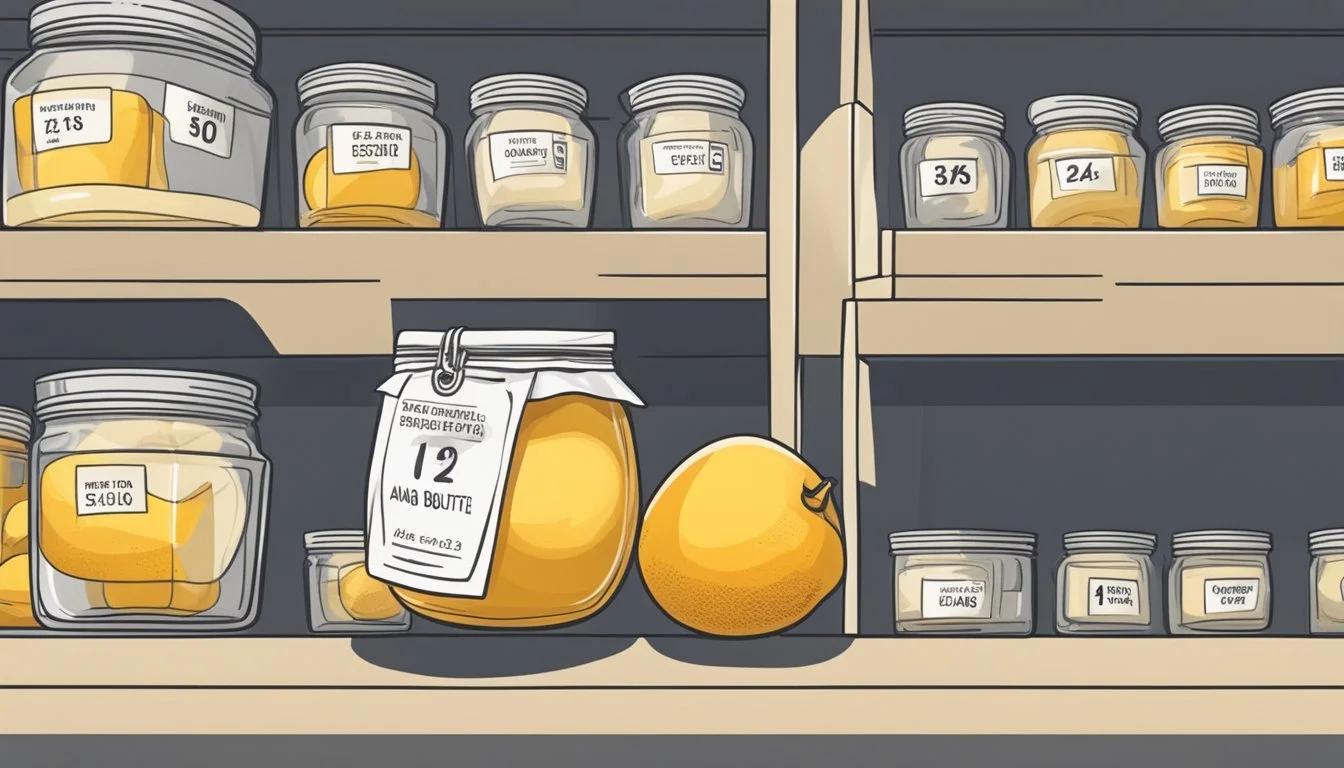How Long Does Mango Butter Last?
Shelf Life and Storage Tips
Mango butter (how long does butter last?) is a natural substance derived from the fruit seed of the mango tree. This creamy butter is known for its emollient properties and is commonly used in skin care formulations. Concerning its shelf life, mango butter can last up to approximately two years when stored properly. The quality of mango butter over time is influenced by its storage conditions; hence, maintaining its texture and efficacy requires it to be kept in a cool, dry place away from direct sunlight and heat sources.
The shelf life of mango butter can vary based on whether it is raw or has undergone processing such as deodorization or hydrogenation. Pure, organic mango butter without any additives is typically at its best quality within 24 months from the date of packaging. To ensure that mango butter maintains its texture and beneficial properties, it should be stored appropriately, under the conditions that do not promote rancidity or spoilage.
Composition and Properties
The section delves into the unique composition of mango butter and its rich content of nutrients and antioxidants which contribute to its shelf life and skin-nourishing properties.
Understanding Mango Butter
Mango butter is derived from the seed of the mango fruit. In its purest form, it is a soft solid that melts upon contact with the skin, making it an ideal ingredient for skin care formulations. The butter's consistency and spoilage rate are influenced by its composition which includes a blend of several fatty acids.
Key Fatty Acids in Mango Butter:
Stearic Acid: Provides a solid consistency and helps with the product's longevity.
Oleic Acid: Known for its moisturizing properties and contributes to the butter's creamy texture.
Palmitic Acid: Assists in forming a protective layer on the skin.
Essential Nutrients and Antioxidants
Mango butter is more than a hydrating element; it's packed with nutrients that have protective and restorative effects on the skin.
Vitamins: Mango butter is high in vitamins that are beneficial to skin health.
Vitamin E: An antioxidant that helps protect the skin from oxidative stress.
Vitamin C: Contributes to the skin's brightness and helps in the synthesis of collagen.
Antioxidants: Its antioxidant profile is notable for shielding the skin against environmental aggressors, thereby potentially extending the butter's usability by minimizing rancidity.
This nutrient-rich profile not only correlates with mango butter's ability to foster healthy skin but also with its shelf life, typically lasting for approximately 24 months when stored properly in a dry and cool environment.
Optimal Storage Conditions
Proper storage is crucial to maximize the shelf life of mango butter. It should be kept in a cool, dry place, away from light and excessive air exposure.
Effects of Temperature and Light
Mango butter's stability is heavily influenced by temperature and light. To maintain its integrity, one should store it away from direct sunlight and heat sources. High temperatures can cause the mango butter to melt and potentially become rancid. Likewise, UV light can degrade its quality over time. A cool, dark environment such as a pantry or cupboard is ideal to prevent these damaging effects.
Preventing Moisture and Air Exposure
Moisture and air can significantly shorten the lifespan of mango butter due to oxidation and potential contamination. To prevent this:
Store mango butter in an airtight container; this minimizes air and humidity exposure.
One might opt to store it in the refrigerator to further reduce air interaction and discourage bacterial growth. If doing so, ensure the container is sealed properly.
In cases where long-term storage is necessary, the freezer can be used to extend the shelf life even more. However, be sure to thaw the butter properly before using it to preserve its texture and properties.
Shelf Life Determinants
The shelf life of mango butter varies based on its processing method and storage conditions. Specific factors such as whether the butter is fresh (unrefined) or refined, the type of packaging, and the use of preservatives directly influence its longevity before it turns rancid.
Fresh vs. Refined Mango Butter
Unrefined mango butter, also known as fresh mango butter, retains more natural properties because it undergoes minimal processing. As such, it typically has a shorter shelf life as it contains more bioactive compounds that can degrade over time. Conversely, refined mango butter has been processed to remove impurities and certain organic components, potentially extending its shelf life due to reduced susceptibility to rancidity.
Impact of Packaging and Preservatives
Packaging plays a significant role in preserving the quality of mango butter. Proper packaging that limits exposure to light, heat, and air can help extend the shelf life. Materials like airtight containers are preferred to prevent oxidation.
On the other hand, the addition of preservatives can inhibit microbial growth and delay the process of mango butter turning rancid. The use of natural or chemical preservatives is common in extending the shelf life of both unrefined and refined mango butter, with certain preservatives having the potential to significantly prolong freshness.
Identifying Spoilage
When assessing the quality of mango butter, key indicators of spoilage include changes in scent, texture, appearance, and the presence of mold or rancidity. These changes signify that the product is no longer suitable for use.
Changes in Scent, Texture, and Appearance
Scent: Fresh mango butter typically has a slightly sweet and nutty aroma. If it develops a sour or rancid smell, it's a clear sign that the butter has spoiled.
Texture: Good quality mango butter is smooth and creamy. Any hardening, grittiness, or change in texture suggests degradation.
Appearance: Mango butter should have a consistent coloration. Discoloration, such as any unfamiliar darkening or light spots, may indicate spoilage.
Mold Growth and Rancidity
Mold: The presence of mold, which may appear as fuzzy spots of various colors, is a definite indicator that mango butter should not be used.
Rancidity: Rancid mango butter may not only smell unpleasant but also can taste sour or off. This is caused by the breakdown of fats over time, particularly if the butter has been exposed to light, heat, or air for prolonged periods.
Practical Tips for Prolonging Shelf Life
To maintain the quality of mango butter for as long as possible, one should adopt proper storage and usage techniques and consider the use of certain additives to extend its usability.
Proper Handling and Usage Techniques
Proper handling is crucial for maintaining mango butter's integrity. Users should always ensure their hands are clean before contact to prevent contamination. Using clean utensils rather than fingers to extract the butter can also help minimize the introduction of bacteria. To lock in moisture and maintain its natural properties, mango butter should be stored in a cool, dry place, away from direct sunlight and heat sources. Airtight containers are preferable to seal out humidity and other environmental factors that could shorten its shelf life.
Extending Usability with Additives
The use of preservatives can significantly prolong the shelf life of natural mango butter. Natural antioxidants like Vitamin E act as preservatives and can be added to the butter. They apply their properties to help protect the butter from rancidity. For homemade cosmetics that incorporate mango butter, it is advisable to include broad-spectrum preservatives to ward off microbial growth, especially if water is part of the recipe. This technique not only preserves the butter but also enhances the shelf life of the final product.
Applications and Usage
Mango butter is a versatile ingredient utilized in various food recipes and skincare applications, renowned for its taste enhancement in baking and moisturizing properties in cosmetics.
In Food Recipes and Baking
When mango butter is incorporated into food recipes and baking, it contributes a subtle, sweet taste and creamy texture that can elevate products like cakes and desserts. It's a choice ingredient for those looking to add a rich, buttery consistency without a heavy feel.
Taste: Mango butter imparts a mild, sweet flavor, making it a complementary addition to sweet baked goods.
Recipe tip: Substitute mango butter in equal quantities for other fats in recipes for an exotic twist.
In Skin Care and Cosmetic Products
Mango butter is prized in skin care and cosmetic formulations for its hydrating properties, especially beneficial for individuals with dry skin, eczema, or psoriasis.
Moisturizer: Its light yet effective moisturizing capabilities help soothe and repair dry areas without feeling greasy.
Skin Conditions: Those with sensitive skin conditions may find relief in creams and lotions containing mango butter due to its nourishing and soothing properties.
Comparing Mango Butter with Other Fats
When discussing natural fats for skincare, mango butter often gets compared to shea and cocoa butter (how long does cocoa butter last?) due to its similar applications and benefits.
Mango Butter vs. Shea and Cocoa Butter
Mango Butter:
Melting Point: Approximately 86°F (30°C), melts quickly upon skin contact.
Fatty Acid Profile: High in oleic and stearic acids, nutrient-dense, and non-comedogenic.
Texture: Light and creamy, less likely to clog pores.
Shea Butter:
Melting Point: Around 95°F (35°C), takes longer to melt into the skin.
Fatty Acid Profile: Rich in oleic, stearic, palmitic, and linoleic acids, with a higher stearic acid content compared to mango butter.
Texture: Thick and solid, can be more occlusive on the skin.
Cocoa Butter:
Melting Point: Typically similar to shea butter.
Fatty Acid Profile: High in saturated fats which contribute to its solid form at room temperature.
Texture: Very solid and dense, can be quite occlusive and not ideal for oily skin types.
Comparison of melting points and fatty acid profiles indicate that mango butter is a lighter option, which could be beneficial for individuals with oily or acne-prone skin due to its non-comedogenic properties.
Benefits of Mango Butter for the Skin
Mango butter's benefits for the skin include:
Moisturization: Its semi-solid consistency allows for rich hydration without leaving a greasy residue.
Nutrient-Dense: Packed with antioxidants and fatty acids that nourish the skin.
Anti-Inflammatory: May help soothe and reduce inflammation in the skin, making it suitable for sensitive skin types.
The properties of mango butter make it an attractive ingredient for those looking for effective, gentle hydration and nourishment in their skincare routine.
DIY and Home-Made Preparations
Creating your own mango butter mixture at home allows for customization and control over the natural ingredients used. Proper storage is essential to maintain the quality and extend the shelf life of DIY mango butter products.
Creating Your Own Mango Butter Mixtures
To make mango butter at home, one needs ripe mangoes, a carrier oil of choice, potentially some essential oils for fragrance, and a double boiler or saucepan. The process involves extracting mango pulp and gently melting it with a carrier oil such as coconut, jojoba, or almond oil. This ensures that the final mixture is not only fragrant but also possesses the natural benefits of mango butter.
Ingredients:
Ripe mango pulp
Carrier oil (e.g., coconut, almond, or jojoba oil)
Essential oil (optional, for fragrance)
Equipment:
Double boiler or saucepan
Storage container
Mango Butter Recipe:
Melt mango pulp with the carrier oil in a double boiler or saucepan.
Once melted, remove from heat and let it cool.
If desired, add a few drops of essential oils for fragrance.
Transfer to a container and allow to set.
By creating your own batches, you can stock up on this versatile body butter, ensuring you always have a 100% pure, personalized skincare product on hand.
Storage and Preservation of DIY Products
To save the quality of your home-made mango butter, it is crucial to store the product correctly. Mango butter should be kept in an airtight container to prevent exposure to moisture and light. Ideally, it should be stored in a cool, dry place.
Storage Best Practices:
Use airtight containers to retain freshness.
Keep in cool, dry places away from direct sunlight.
If made without preservatives, consider refrigeration to extend shelf life.
Following these practices, DIY mango butter can remain stable and usable. Pure, chemical-free mango butter typically lasts for about 24 months when stored properly. It's important to note that adding other natural ingredients can influence the shelf life, therefore keeping mindful of any changes in texture or smell is advised to ensure the product remains safe to use.









